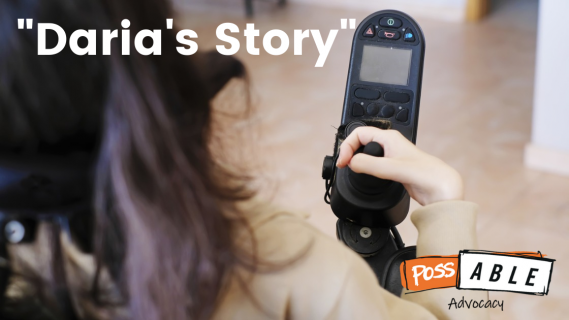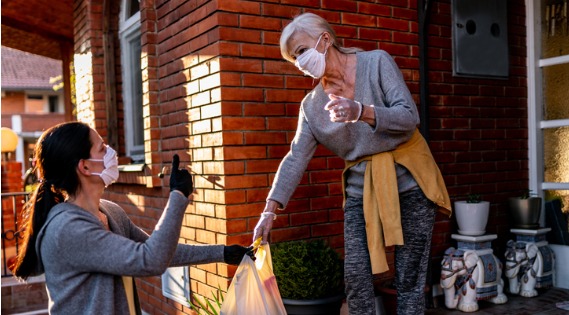The Final Report of the Royal Commission into Aged Care Quality and Safety was tabled in Parliament today after two years of investigations into the quality of care provided in the aged care system in Australia.
In their report, titled Care, Dignity and Respect, Royal Commissioners Tony Pagone QC and Lynelle Briggs AO call for fundamental reform of the aged care system:
"The extent of substandard care in Australia’s aged care system reflects both poor quality on the part of some aged care providers and fundamental systemic flaws with the way the Australian aged care system is designed and governed. People receiving aged care deserve better. The Australian community is entitled to expect better."
For too long, they say, the legislation that governs aged care in Australia has focused on the funding requirements of aged care providers rather than the care needs of older people. They propose a clearly articulated purpose for the new aged care system:
"To deliver an entitlement to high quality care and support for older people, and to ensure that they receive it. The care and support must be safe and timely and must assist older people to live an active, self-determined and meaningful life in a safe and caring environment that allows for dignified living in old age."
In a press conference, the Prime Minister described the Commission as the "inquiry we needed to have" although acknowledged it as a "harrowing process".
What changes does the report suggest?
The Royal Commissioners make 148 wide-ranging recommendations, including:
- A new Aged Care Act that puts older people first, enshrining their rights and providing a universal entitlement for high quality and safe care based on assessed need.
- An integrated system for the long-term support and care of older people and their ongoing community engagement.
- A System Governor to provide leadership and oversight and shape the system.
- An Inspector-General of Aged Care to identify and investigate systemic issues and to publish reports of its findings.
- A plan to deliver, measure and report on high-quality aged care, including independent standard-setting, a general duty on aged care providers to ensure quality and safe care, and a comprehensive approach to quality measurement, reporting and star ratings.
- Up to date and readily accessible information about care options and services, and care finders to support older people to navigate the aged care system.
- A new aged care program that is responsive to individual circumstances and provides an intuitive care structure, including social supports, respite care, assistive technology and home modification, care at home and residential care. In particular, the new program will provide greater access to care at home, including clearing the home care waiting list.
- A more restorative and preventative approach to care, with increased access to allied health care in both home and residential aged care.
- Increased support for the development of "small household" models of accommodation.
- An Aboriginal and Torres Strait Islander aged care pathway to provide culturally safe and flexible aged care to meet the needs of Aboriginal and Torres Strait Islander people wherever they live.
- Improved access to health care for older people, including a new primary care model, access to multidisciplinary outreach services and a Senior Dental Benefits Scheme.
- Equity of access to services for older people with disability and measures to ensure younger people do not enter or remain in residential aged care.
- Professionalising the aged care workforce through changes to education, training, wages, labour conditions and career progression.
- Registration of personal care workers.
- A minimum quality and safety standard for staff time in residential aged care, including an appropriate skills mix and daily minimum staff time for registered nurses, enrolled nurses and personal care workers for each resident, and at least one registered nurse on-site at all times.
- Strengthened provider governance arrangements to ensure independence, accountability and transparency.
- A strengthened quality regulator.
- Funding to meet the actual cost of high-quality care and an independent Pricing Authority to determine the costs of delivering it.
- A simpler and fairer approach to personal contributions and means-testing, including removal of co-contributions toward care, reducing the high effective marginal tax rates that apply to many people receiving residential aged care and phasing out Refundable Accommodation Deposits.
- Financing arrangements drawing on a new aged care levy to deliver appropriate funding on a sustainable basis.
The Royal Commissioners recommend ongoing monitoring and reporting arrangements to support the effective and transparent implementation of their recommendations.
Some of the recommendations present the Australian Government with alternative options for reform. The Chair of the Royal Commission, Commissioner Pagone, explains in his preface:
"Many of our recommendations and observations are made jointly, but there are some instances where we make differing recommendations and observations. We have agreed, with some misgivings and not without anxious consideration, to make some separate recommendations and to express different views where we diverge. But we both strongly conclude that fundamental change is needed. In the end, the differences between us may add to the strength of the reforms which are to be made."
Commissioner Briggs writes:
"We have elected to provide the Government with two options for the governance of the aged care system, and the impact of those options necessarily flows through into other recommendations. However, this is a secondary issue to the quality and safety task at hand, which dominates our recommendations and, importantly, on which we agree."
The Final Report comprises 5 volumes.
- Volume 1: Summary and recommendations
- Volume 2: The current system
- Volume 3: The new system
- Volume 4: Hearing overviews and case studies
- Volume 5: Appendices
How can I read the report?
Or view a Summary of the Report directly from the Aged Care Royal Commission website.
What happens now?
The Royal Commissioners have recommended that the Australian Government report to Parliament by 31 May 2021 its response to their recommendations. Once the Australian Government makes its response to the report public, it will then begin to implement the changes it commits to.
Need more information?
We've been reporting on the Aged Care Royal Commission process as it happened. You can look back at past hearings and reports published here:
Aged Care Royal Commission holds final hearing Royal Commission into Aged Care Quality and Safety - Sydney Hearing 5Aged Care Commission looks at Home CareRoyal Commission into Aged Care Quality and Safety - Sydney Hearings 2 and 3 transcripts availableRoyal Commission into Aged Care Quality and Safety - Melbourne Hearing 4National Survey Results - Australia talks about Older Age and Aged CareRoyal Commission investigates interfaces between aged care and health Prime Minister responds to Aged Care Royal Commission's Interim ReportAged Care Royal Commission Interim report Royal Commission into Aged Care






















